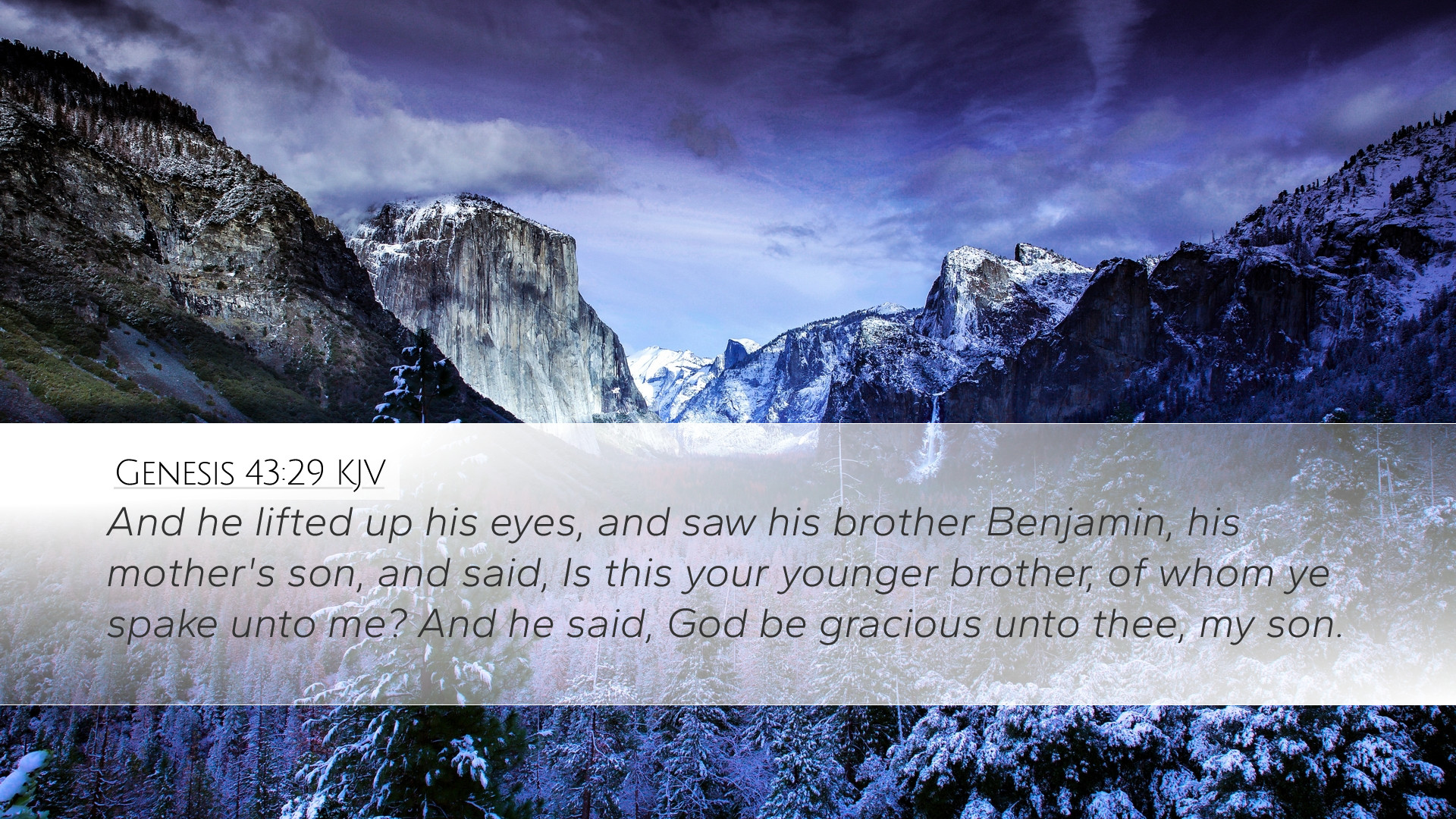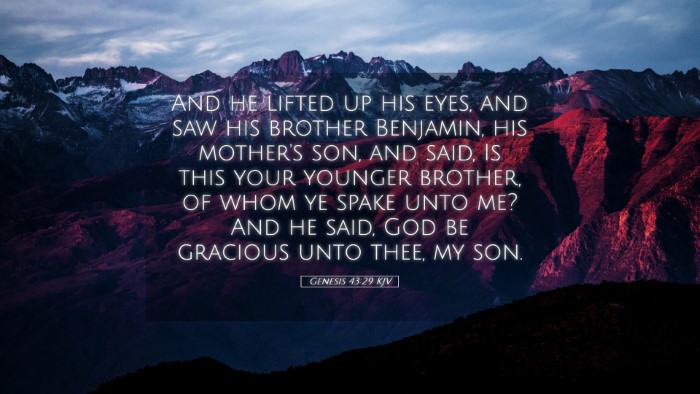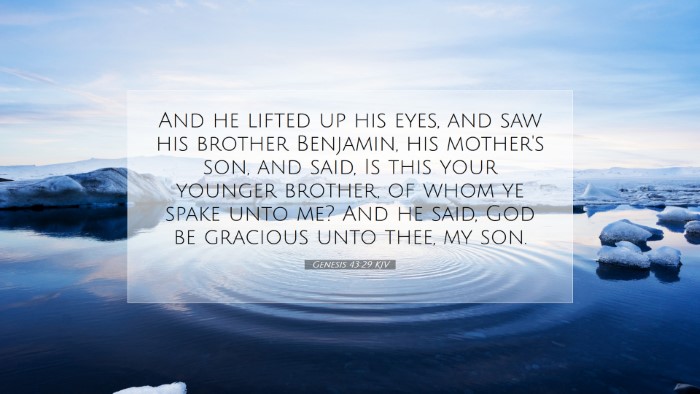Genesis 43:29 (KJV): "And he lifted up his eyes, and saw his brother Benjamin, his mother's son, and said, Is this your younger brother, of whom ye spake unto me? And he said, God be gracious unto thee, my son."
Introduction
This significant verse from Genesis highlights a pivotal moment in the life of Joseph and his interactions with his brothers. The emotional weight carried in this scenario has been the subject of deep reflection among theologians and biblical scholars. Various commentators provide valuable insights into the implications of this verse.
Contextual Background
In the broader context of Genesis 43, Joseph, now a powerful figure in Egypt, encounters his brothers who had previously sold him into slavery. This chapter unfolds during a time of famine, requiring the brothers to return to Egypt in search of sustenance. Their encounter with Joseph is laden with tension, family dynamics, and unresolved guilt.
Exegesis of the Verse
Verse 29 opens with Joseph’s action of lifting up his eyes—a gesture indicating surprise and focus. This can be viewed not only as a physical action but also as a metaphor for Joseph’s renewed perspective on family and betrayal.
Joseph's Recognition of Benjamin
Joseph's immediate recognition of Benjamin, his only full brother, stirs profound emotions. As Matthew Henry notes, "The sight of Benjamin must have filled his heart with the more tender affections, as being the child of his own mother." This highlights Joseph's deep-rooted familial affection, indicating a strong bond forged through shared motherhood.
The Significance of the Question
Joseph’s inquiry, “Is this your younger brother?” serves multiple purposes. Albert Barnes asserts that it also reflects a desire to ascertain the truth of their report. This point not only verifies their statements but also serves as a moment of emotional testing; the brothers are now confronted with their past actions.
The Theological Implications
This moment emphasizes God’s providence in familial relationships. Adam Clarke articulates that Joseph's ministry in Egypt was part of a divine plan, designed for the preservation of his family. The reunion with Benjamin illustrates the unfolding of God's purpose through trials.
The Role of Grace
Joseph’s declaration, “God be gracious unto thee, my son,” is laden with grace and kindness. This marks a shift from the brothers' past betrayal to a plea for divine mercy, illustrating God’s overarching love. Here, the theme of grace serves as a stark contrast to the brothers' previous actions.
Emotional Resonance and Symbolism
The emotional depth of this interaction encapsulates themes of reconciliation and forgiveness. The sight of Benjamin does not merely evoke nostalgia; it represents a reconciliation of past hurts and an opportunity for forgiveness that had long been absent.
The Impact of Family Relationships
The dynamics between Joseph and Benjamin also speak volumes about the importance of family unity. Matthew Henry indicates that the bonds formed through motherhood are strengthened in trials, showcasing how God's hand works in restoring relationships. Benjamin becomes a symbol of hope and restoration amid chaos.
Practical Applications for Today
This verse brings forth several applications relevant to both personal and communal faith:
- Reconciliation: Encourages believers to seek healing in broken relationships, reflecting the grace Joseph shows towards his brothers.
- Understanding Providence: Reminds us that God’s plans often unfold through our trials, teaching us to trust in His divine wisdom.
- Embracing Grace: Calls us to extend grace to others just as Joseph did, reflecting God’s love in our interactions.
- Familial Bonds: Highlights the importance of nurturing and protecting family relationships in faith.
Conclusion
Genesis 43:29 encapsulates a profound moment of recognition and grace that ripples through the narrative of Joseph and his brothers. As we reflect on insights from esteemed commentators, we are reminded of the broader themes of forgiveness, divine providence, and the enduring strength of family bonds. This verse serves as a powerful reminder of the transformative power of God's grace in our lives and relationships.


